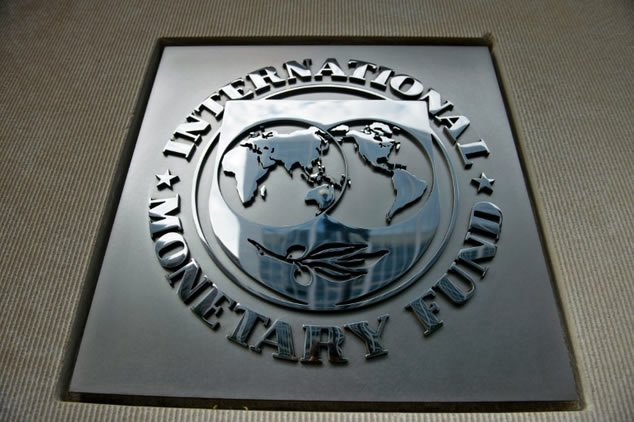The Independent Media and Policy Initiative has questioned the rationale of the International Monetary Fund for downgrading its economic growth projection for Nigeria in 2025 from 3.2 per cent to 3.0 per cent on the back of the global oil slump.
This, according to the think tank, is because the Nigerian economy has not, of late, been solely about oil, especially with the substantial growth in the country’s non-oil export year-on-year, as a result of ongoing economic diversification and the impact of government policies.
In a policy statement signed by its Chairman, Dr Omoniyi Akinsiju, the IMPI argued that it was more favourably disposed to the seven per cent growth forecast by the Minister of Finance and Coordinating Minister of the Economy, Wale Edun.
It said, “In its economic outlook, the IMF downgraded Nigeria’s economic growth forecast for 2025 by 0.2 percentage points to 3.0 per cent, down from 3.2 per cent, while growth for 2026 was also revised downward by 0.3 percentage points to 2.7 per cent.
“The IMF justified this forecast by citing projected lower global oil prices as a significant risk to the country’s fiscal and external balances.
“We wonder how a single factor can be responsible for the projected massive decline in the size of an economy, more so, when Nigeria is moving away from its dependency on crude oil earnings.”
It added that the World Bank’s projection, on the other hand, offered a more optimistic view.
“In its report, the World Bank projected that Nigeria’s economy would grow by 3.6 per cent in 2025, building on an estimated 3.4 per cent expansion in 2024 and, thereafter, strengthening to 3.8 per cent by 2027.
“The bank credited the federal administration’s possible sustenance of economic reforms with the gradual stabilisation of the macroeconomic environment.
“Critical to the World Bank’s projection is the expected improvement in the performance of the non-oil sectors, mainly services such as financial services, telecommunications, and information technology, as well as easing inflationary pressures and improved business sentiment,” it added.
The think-tank said the IMF’s GDP data discrepancies were not unique to Nigeria, adding that it was not unusual for countries to pick holes in its projections.
The economic group cited the examples of Mexico and Zambia, where it was proved wrong.
“IMF’s GDP data discrepancies are not unique to Nigeria. At different times, its country members worldwide have had cause to dispute the body’s projections on various grounds.
“Mexico, for instance, has also disagreed with the IMF on its forecasts.
“In its World Economic Outlook, the IMF forecasted a 0.3 per cent contraction in Mexico’s economic growth for 2025, down from the Fund’s January forecast of a 1.4 per cent expansion, as US tariffs bite into exports.
“In dismissing the IMF’s forecast, Mexican President Claudia Sheinbaum declared, ‘We do not know what it is based on. We disagree. We have our economic models, which the finance ministry has, that do not coincide with this projection.’
“She added that public investments would prevent the economy from contracting and touted her government’s ‘Plan Mexico,’ an effort to boost domestic industry amid tariffs US President Donald Trump imposed on some imports from Mexico,” it added.
The think-tank said experience had shown that several IMF projections on developing economies often prove inaccurate.
“In 2008, the IMF predicted that Zambia would be hit by the fall in copper prices during the financial crisis. The IMF was proven wrong as the Zambian economy survived the global downturn.
“We find comfort in the submission of the US Department of State, which described Nigeria as an economic miracle while commending the Federal Government’s ongoing reforms,” IMPI added.
On the concerns by both the World Bank and the IMF on poverty in Nigeria, the think tank posited that the incumbent federal administration was better placed than its predecessors to tackle the issue.
“We acknowledge the concerns the World Bank and the IMF raised about the limited impact of the policies on reducing poverty among everyday Nigerians.
“But the truth is that before 2023, the country had been a site for endemic poverty, with the number of people living in absolute poverty defined in terms of the minimal requirements necessary to afford minimal standards of food, clothing, healthcare and shelter, reaching a high of 99,284,512 people in 2010, about 60.9 per cent of the population at that time.
“In 2004, NBS estimated the poverty rate to be 54.7 per cent, and this was despite Nigeria experiencing economic growth, with crude oil prices ranging between $100 and $120 per barrel and a daily production of 2.3 million barrels.
“When the dynamics of the years, especially the oil boom era between 2010 and 2014, are compared to the evolving characters of the present-day economy, we see sufficient indicators of the impact on the average Nigerian in the near term.
“In other words, if there is ever a possibility of reducing the number of Nigerians living below the poverty line, it is under the current federal administration,” it added.
The group hinged its optimism on the recently released Central Bank of Nigeria’s March 2025 economic report, which indicated continued expansion in economic activities across the country.
“The composite Purchasing Managers’ Index at 52.3 percentage points indicates economic expansion for the third consecutive month in 2025,” it concluded.















